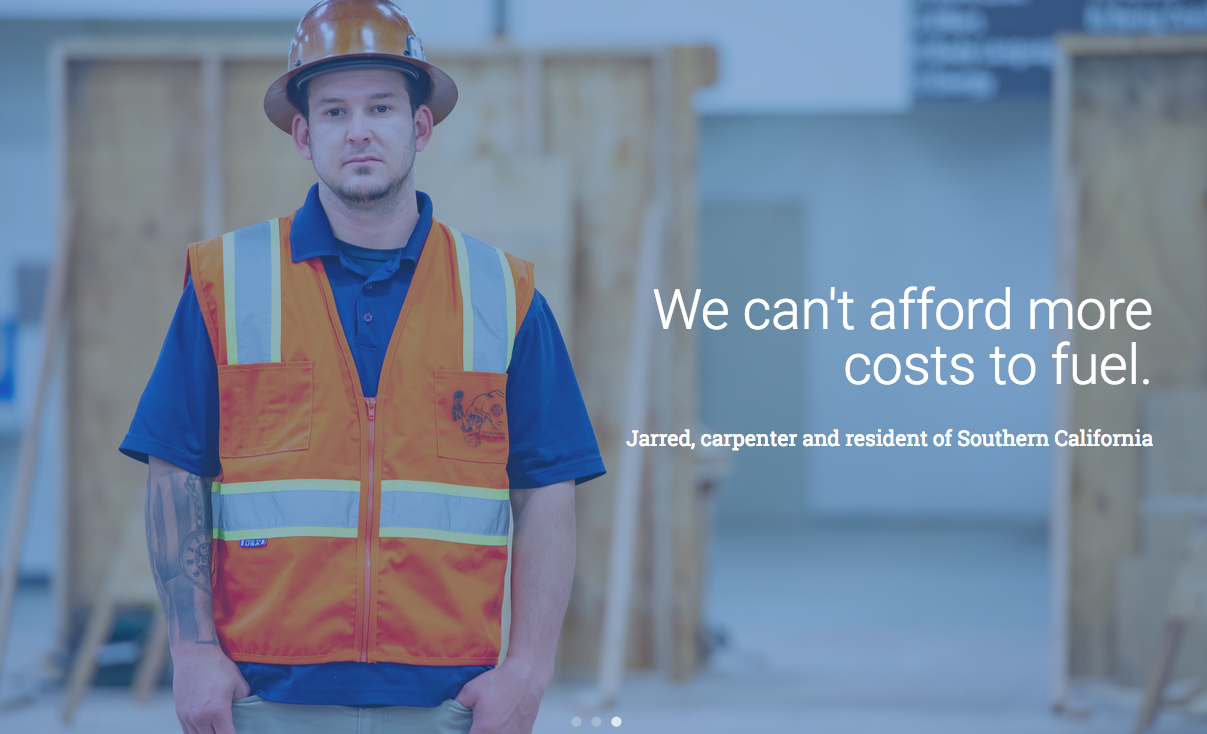Note: GJEL Accident Attorneys regularly sponsors coverage on Streetsblog San Francisco and Streetsblog California. Unless noted in the story, GJEL Accident Attorneys is not consulted for the content or editorial direction of the sponsored content.
The ads show a Latinx mom with three kids, looking at the camera with concern. “We can't afford runaway energy and fuel costs” is printed across the photo.
A particularly sad-looking young fellow in a safety vest and hard hat named Jarred—first name only—stands next to the words: “We can't afford more costs to fuel.”
An older black gentleman the ad says is Will, a farmer in the Central Valley, stands in a straw hat, crossing his arms and looking disgusted. “We can't afford higher energy bills,” says his ad copy.
It's part of a media blitz by a group calling itself “Californians for Cost Containment” that is actually a project of the Western States Petroleum Association, aka WSPA, aka the biggest oil lobbyist in California.
Newspapers around the state also carried op-ed pieces today with the same message: fuel prices are too damn high, and unelected officials at the state Air Resources Board are breaking the law to raise them even higher.
Except that's not what's happening. At today's California Air Resources Board meeting, the agenda includes discussion of proposed updates to the cap-and-trade program as directed by the legislature. Amendments are being discussed, but no action on them will be taken until the new year.
WSPA's fear-mongering ads are based on staff presentations that show a worse-case scenario for gas prices in 2030. But that doesn't take into account the rest of the story, including projections that overall costs for people—like the diverse group of everyday citizens used in WSPA's ads—could very likely be reduced in other ways by 2030.
The wonky policy WSPA is currently attacking—and has always attacked—is around how to negotiate prices for allowances under cap-and-trade. Industry wanted a firm price ceiling, but others, such as the Environmental Defense Fund, argued a low price ceiling could theoretically lead to “unlimited pollution at a set price” --not a desired outcome for a program that aims to cap pollution.
The updates include discussions about how and where to set a price ceiling and WSPA is unhappy with the way the discussion is going. So they attack the ARB as “unelected regulators,” even though the legislature specifically delegated the question of how to set the price ceiling to the experts--who happen to work at the ARB.
The Air Resources Board hearing is happening now—today and tomorrow—and covers many more topics than just this one. For example, ARB staff has only just begun to look at the total social cost of emitting carbon, as they are required by the legislature to do. The results of their analysis--a departure from the cost-benefit analysis they have been using since cap-and-trade was launched--are likely to show much higher costs on the other end of the balance sheet. That is, the traditional way of looking at cap-and-trade has focused on what it costs to reduce emissions. In contrast, measuring the social costs of carbon will put the focus instead on what it costs everybody--in terms of health and economic well-being—to have to deal with those emissions in the first place.
That is likely to be very bad news for the oil industry.






